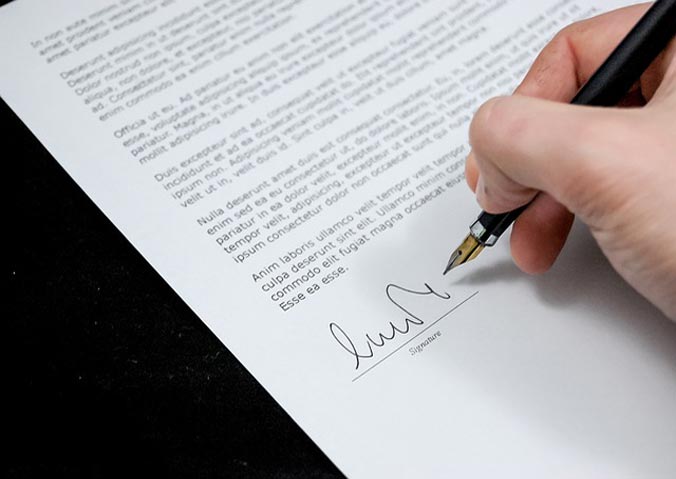Settlement Agreements
All good lawyers will tell you that most cases settle before they ever come to court. This is both a necessity and the logical outcome of the judicial process.
It is necessary because if every case were to continue through trial and a decision by a jury or judge, the judicial system would quickly be overwhelmed.
It’s a logical outcome because the very nature of the legal process is designed to illuminate the strengths and weaknesses of each party’s case and give them incentives to settle.
Furthermore, the settlement allows parties to exercise more control over the terms of the settlement and have access to remedies that might not be available from a trial court.
But what kind of settlement ought to be achieved? And what type of process should govern settlement negotiations. Here are some tips:
(These six tips are based on the Ethical Guidelines for Settlement Negotiations produced by the American Bar Association)
Purpose: The purpose of settlement agreements is to resolve any disputes the client may face satisfactorily. The attorney represents the client legally and financially and must always act in the client’s best interest.
Honesty: A lawyer’s conduct in negotiating a settlement should be characterized by honour and fair dealing.
Communication: Good lawyers must promptly consider and discuss with the client any and all alternatives to resolving the dispute outside of litigation.
Without assistance from lawyers, clients often are not aware of potential alternative methods for dispute resolution.
A lawyer’s desire to convince the client of the lawyer’s support for the client’s position ordinarily will not justify delaying efforts to discuss early settlement.
As negotiations progress, the attorney is obligated to constantly communicate the status of the discussions and the subject matter of the negotiations to the client.
Agency: The decision about whether to pursue settlement discussions and the ultimate nature of the settlement belongs to the client.
An attorney should not begin negotiations designed to settle a matter without obtaining client approval.
The degree of independence the lawyer exercises in the settlement process should reflect the client’s wishes, expressed clearly to the lawyer.
Authority: A lawyer may exercise broad general authority over a client but may never enter into a final settlement unless all of the deal terms unquestionably fall within the scope of the authority given to the lawyer by the client or the client specifically consents to the deal.
Furthermore, the lawyer should not seek to enter into a retainer agreement or other engagement that attempts to give the attorney irrevocable authorization to settle; a client must always have a right to revoke the attorney’s right to settle the case.
Ethics: A lawyer must always comply with the rules of professional conduct and applicable law when conducting settlement negotiations and can’t knowingly assist or advise the client to violate the law or the client’s legal duties.
Additionally, here are some general guidelines for settlement negotiations that will help produce timely, cost-efficient, and client-pleasing results:
Early discussion: discussing the possibility and scope of a settlement early in a case allows the attorney to learn quickly about the client’s objectives. It also helps educate the client about possible other modes of dispute resolution. Finally, it provides an opportunity for both the lawyer and the client to set expectations so both can make better decisions.
For clients, the attorney must explain exactly what is the law. This may take some research and time, but understanding where a party stands vis a vis actual statutes or case law is critical. Additionally, the attorney should be able to give the client some expectation of the likely outcome, both during settlement negotiations (if any) and as the case proceeds through trial.
The attorney must obtain explicit authorization from the client to enter into settlement negotiations that outline exactly what authority the attorney has. Do they have broad powers to obtain a settlement or is their authority narrow in scope, limited to only those express terms the client agrees to? The client must also know they have the power to revoke settlement authority.
The client should also be educated about the timing of settlement. In complex cases, engaging in discovery (the exchange of documents and other information between the parties, governed by the court) may be required to get enough information to settle. The lawyer should explain other methods of dispute resolution such as mediation or binding arbitration. Both avenues may produce significantly cheaper outcomes and may speed the process.
Offer should be in writing and approved by the client. An offer letter should reiterate that the letter is intended for settlement purposes only and may not be used for any other purpose (including introduction at trial as evidence). The proposal should have a deadline (typically 30 days) include the important terms of the agreement (but not all the minutia of a final agreement), and the client should always receive a copy of the offer.
Following these guidelines will help both the lawyer and the client achieve better results in their settlement negotiations.

